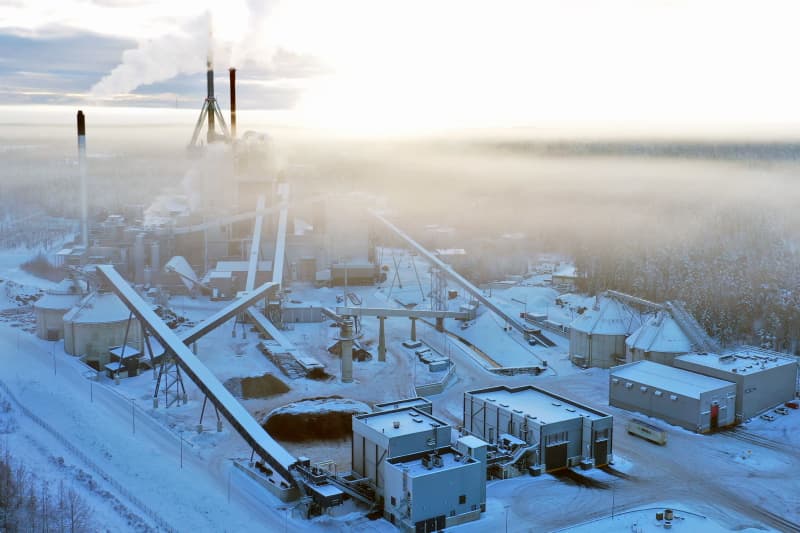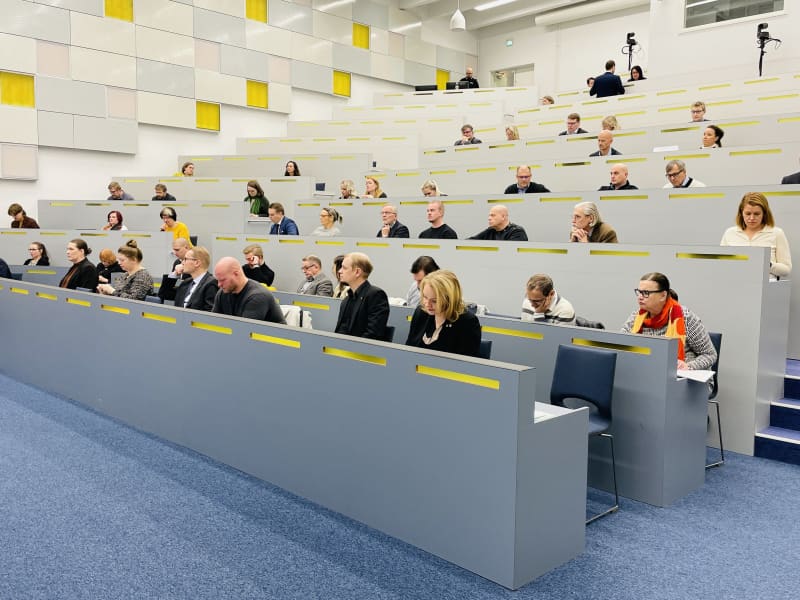
Lahti Energia’s result last year fell by half of the previous year. The company is struggling with many difficulties.
Lahti Energia’s last year was difficult, and the challenges will not recede in the future either.
Lahti Energia Group’s turnover increased by more than eight million euros from the previous year to 205.6 million euros. The result for the financial period was 11.5 million euros, compared to 22.8 million euros a year earlier.
The result of the financial year was significantly affected by the suspension of Fennovoima’s Pyhäjoki nuclear power project, which is why Lahti Energia had to write down EUR 17 million from Voimaosakeyhtiö SF’s shares.
Rising pressure in the price of district heating
The import of electricity from Russia ended in May 2022. The problems of Olkiluoto 3 and the increase in wind power capacity increased electricity price fluctuations, especially at the end of the year. Lahti Energia did not fully benefit from the increase in electricity prices, as a significant part of Lahti Energia’s electricity production is hedged in advance at a fixed price.
Kymijärvi’s power plants mostly use wood chips and recycled fuel, the demand and price of which have increased strongly since the import of Russian wood chips to Finland ended.
The increase in the fuel prices of Lahti Energia’s power plants has also led to a considerable increase in district heating production costs. That’s why Lahti Energia increased the price of district heating for its customers by an exceptional amount last summer and autumn.
– We want to keep the price of district heating competitive, but at the moment we have no possibility to lower the price. Price increases cannot be completely ruled out either.

Heat production is electrified
In recent years, Lahti Energia has made large investments in new production facilities. Kymijärvi II, completed in 2012, uses recycled fuel, and Kymijärvi III, completed in 2020, uses biofuel.
Due to the power plant investments, Lahti Energia is heavily in debt, and the dividend payment to its owner, the city of Lahti, has almost completely stopped.
In today’s light, the profitability of investments is weakening. According to the EU proposal, waste incineration will be included in emissions trading by 2031 at the latest. In addition, Finland’s climate panel has proposed taxing the energy use of wood in order to make Finland’s climate action more effective.
– Investments in the energy sector are made with a long cycle. In the 2010s, we have switched from fossil fuels to the use of forest energy. It would be very short-sighted to start punishing this, says Haikarainen.
Haikarainen believes that bioenergy will be used in Lahti for the rest of this decade and the next. Lahti Energia is still preparing for the future by electrifying its heat production. Electrification, utilization of waste heat and heat recycling reduce the need for fuels and lower price pressure.
The entire heat production cannot be electrified, as it would require huge investments.
– The amount of energy produced with recycled fuel and bioenergy is so large that replacing it with purely electricity-based heat production is neither realistic nor possible – at least in the next two decades, says Lahti Energia CEO Jouni Haikarainen.

Financial arrangements frozen
Lahti Energia owes EUR 363 million, of which the city of Lahti owes EUR 121.5 million. According to the city of Lahti, the original loan repayment plan has proven to be too tight in relation to the investment needs. The company, which previously paid millions of euros in dividends, now pays its owner only one million per year.
In order to ensure Lahti Energia’s new investments and future competitiveness, the Lahti City Council decided in December to implement a financial arrangement in which the 60 million euro capital loan granted by the city is converted into an investment. The council deemed the arrangement necessary for the company, even though the city will lose 34 million euros in interest income in the years 2023–2031.
The council’s decision was appealed to the administrative court, because the appellants suspect that it contains prohibited state aid. The Administrative Court made an interim decision in February, with which it prohibited the implementation of the decision until the Administrative Court has decided the matter. According to Haikarainen, as a result, Lahti Energia will have to postpone its investments.
– If there is not enough money, it is difficult to make investments. The breakdown of the energy market and the associated uncertainties are such that some investments may have to be postponed if financing cannot be arranged.
Lahti Energia’s CEO Jouni Haikarainen has no information about the motives of the complainants, listen:
